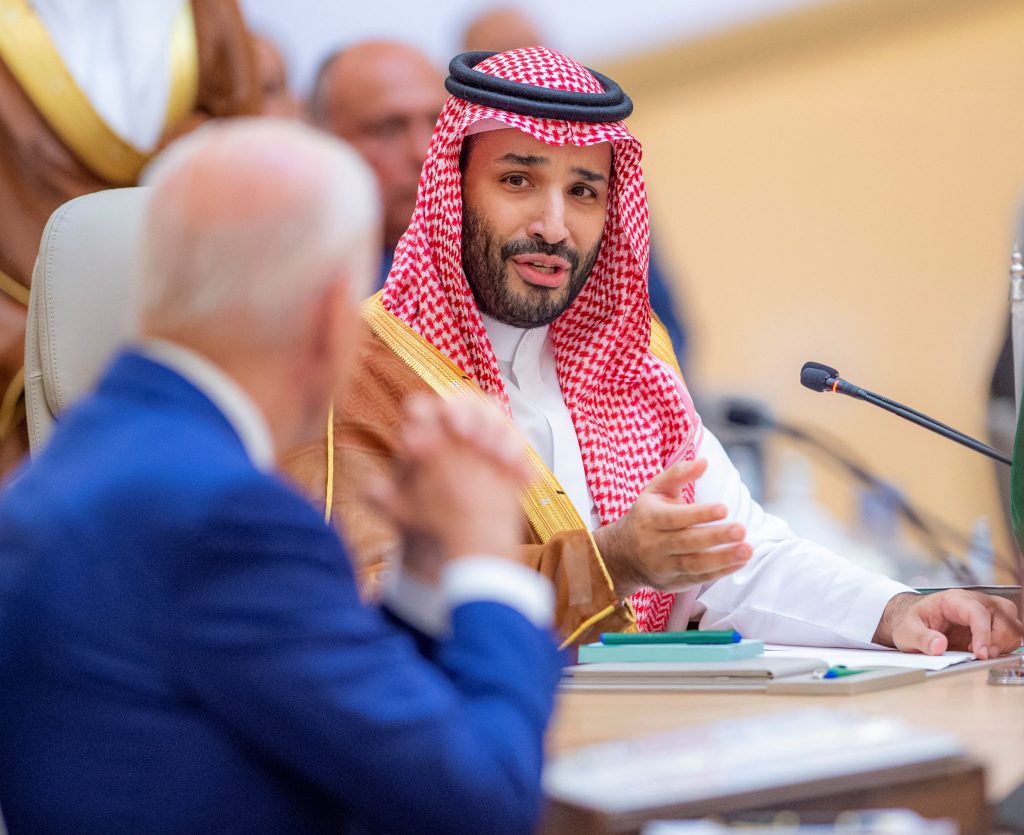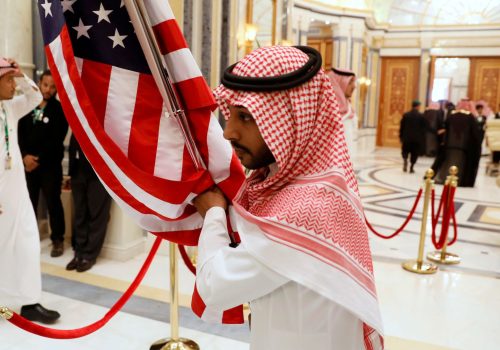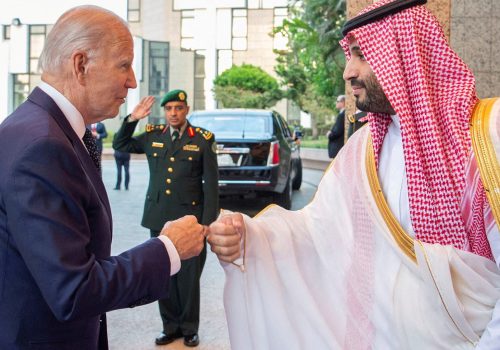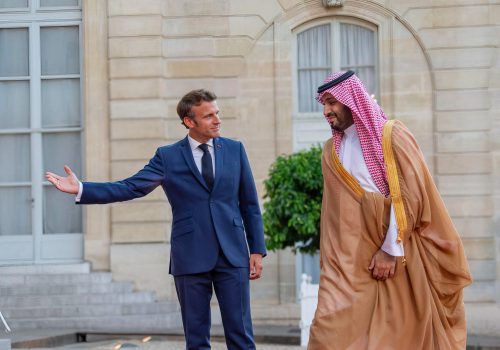The decision by the OPEC+ alliance of oil-producing nations to reduce output beginning next month is probably not aimed solely at President Joe Biden or the United States. But the manner in which it’s being implemented probably is—and it has the potential to be politically damaging for both the president and Democrats. The timing of the cuts—to take effect November 1, one week ahead of the US midterm elections—and their intensity, removing up to two million barrels per day from the market, probably reflect a willingness by Saudi Arabia to jab at Biden. Riyadh is not naïve about the US political landscape. OPEC+ almost certainly could have achieved its same overall goal but waited to act until shortly after the US midterms.
The fundamental problem between the United States and Saudi Arabia is one of continued, misaligned expectations. Saudi Crown Prince Mohammed bin Salman (MBS) continues to demonstrate his preference for global engagement that is transactional, similar to how both China and Russia generally engage in the world. The problem is, that’s not traditionally how Washington conducts foreign policy, preferring long-term strategic relationships.
For the United States—as I said at the time—the idea that the president’s July trip to the Middle East would lead to a huge win on oil prices was never realistic. The drop in gas prices following the trip was correlated more than anything with a drop in global commodities ahead of a potential European, and now possibly global, recession. It was not the result of a comprehensive agreement between Biden and MBS.
But MBS surely also recognizes the broader global context of his decision-making. Riyadh’s support of the cuts reflects a conscious decision to actively support Moscow at a time when the world knows the United States is working to challenge Russia’s ability to successfully wage war in Ukraine, including by limiting capital available to Moscow from oil sales. Inevitably, Riyadh will claim the cuts are in the best interest of Saudi Arabia, and that may be true. In the short term, a coming global recession might portend greater supply and risk pushing oil prices down further. In the long term, as global energy transitions away from fossil fuels accelerate, Riyadh might think that it only has so many years left of high oil prices to glean the revenue needed to reform its economy.
But even if that is Riyadh’s thinking, its behavior indicates a belief that it has nothing to lose on national security by aligning with Russia at this time. It’s true that if the United States makes a hasty and unwise decision to immediately withdraw its security umbrella from Saudi Arabia, Washington risks seeing Beijing fill that gap. On the other hand, Beijing has long been hesitant to play the role of security guarantor, and China cannot completely fill the hardware gap that would exist if the United States left—most prominently for missile defense, a field in which China is still developing its capabilities.
To that end, the bigger question is whether European Union countries would try to jump in to fill the military hardware gap instead, just as Dassault Aviation—the French Rafale jet manufacturer—came to an agreement with the United Arab Emirates to sell its jets shortly after Abu Dhabi called off the deal to purchase the US-made F-35. If so, it will undermine US leverage to redefine the contours of its relationship with Saudi Arabia; if not, the United States will have to decide whether it’s going to try to compel Riyadh to reengage with Washington in a strategic manner or accept a more transactional relationship.
Riyadh may sincerely believe that the economic issues associated with oil prices are distinct from the security requirements for which it relies on the United States. But for Washington, economic security is very much core to national security. To that end, MBS needs to be careful. There are limits to how much the Biden administration is going to accept from a country that’s supposed to be a critical ally—even a transactional one.
Jonathan Panikoff is the director of the Atlantic Council’s Scowcroft Middle East Security Initiative and the former deputy national intelligence officer for the Near East.
The views expressed in this publication are the author’s own and do not imply endorsement by the Office of the Director of National Intelligence or any other US government department or agency.
Further reading
Tue, Jul 12, 2022
How to rescue and rebuild the US-Saudi relationship
New Atlanticist By Jonathan Panikoff
The United States cannot ensure its economic and national security as successfully without Saudi Arabia as a key ally.
Tue, Jul 19, 2022
A tale of two greetings: Decoding Biden’s hand-to-hand diplomacy in the Middle East
New Atlanticist By Jonathan Panikoff
The Biden-MBS fist bump reveals a frosty but functional relationship, while a handshake with Netanyahu reflects a long relationship—and political reality.
Tue, Aug 16, 2022
Under Macron’s leadership, France is leading a middle power strategy in the Gulf. Here’s how.
MENASource By Jean-Loup Samaan
France is positioning itself as a Western partner that, although may not be a substitute to Washington, is one that provides a “convenient and credible” option to those Gulf leaders eager to diversify their partnerships.
Image: Saudi Crown Prince Mohammed bin Salman speaks to U.S President Joe Biden during the Jeddah Security and Development Summit in Jeddah, Saudi Arabia, July 16, 2022. Bandar Algaloud/Courtesy of Saudi Royal Court/Handout via REUTERS ATTENTION EDITORS - THIS PICTURE WAS PROVIDED BY A THIRD PARTY



